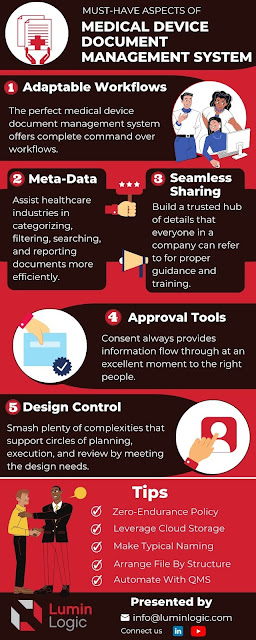Best Practices for Medical Device Management
Today's healthcare facilities house thousands of stationary and mobile medical equipment costing millions of dollars. Yet, despite the volume of machines, most organizations find it challenging to implement a systematic approach to managing their inventory costing them significant losses every year on maintenance and leasing. Med device management suites are one way they could avoid such unwanted expenses, along with other long-term implications. These solutions are offered by professional services that can avoid inefficiency and errors with their expert assistance. Furthermore, they could also offer remedies for any unexpected problems.
Risk factors
Lack of device management leads to some disastrous and costly consequences. Predominantly, auditing could become quite challenging when there is no structured data implemented in the first place. Reports might contain errors making staff members spend hours on this process only to leave them with cycles missing.
As cited before, most machines are portables that can be moved between rooms and facilities. Lack of reliable data makes it difficult for technicians to keep track of these transfers to storage areas. Since they cannot find them for utilization, organizations cannot generate returns from their investment; thus, generating unwanted expenses on audits.
Another drawback lacking data is paying for unnecessary contract conundrums. Companies cannot negotiate with their service providers for a lower cost on contract since there are no reports on actual device performance. Even with easily mendable issues, such conundrums may reflect negatively on contract terms.
Lastly, there are risks of security protections, as medical machines become susceptible to hackers who frequently breach systems with the aim of stealing or installing ransomware. Because of their inefficient protection configurations, these attempts are more common. Poor security measures further incur fines and penalties in the event of any attempted hacks.
Tips for effective management
To avoid all these above discussed risks, organizations must partner up with reliable experts. Yet, they can take some measures on their own to get the most value from this process. Firstly, companies must conduct frequent reviews for their medical device management. Generally, experts recommend conducting studies twice per year based on their business environment and issues spots. If needed, they could also maximize the reviews up to five per year.
They can even leverage emerging technologies to effectively conduct evaluations. There are many software available offering accessibilities and ease of use. It also ensures top-notch security features for advanced data protection. Most importantly, these software solutions can save staff members from burdensome paperwork and research.
The most crucial of all tips is maintaining consistency through the studies. It is another reason to have trained technicians on site since they can regulate these efforts and prevent any errors while processing in regular periods.



Comments
Post a Comment